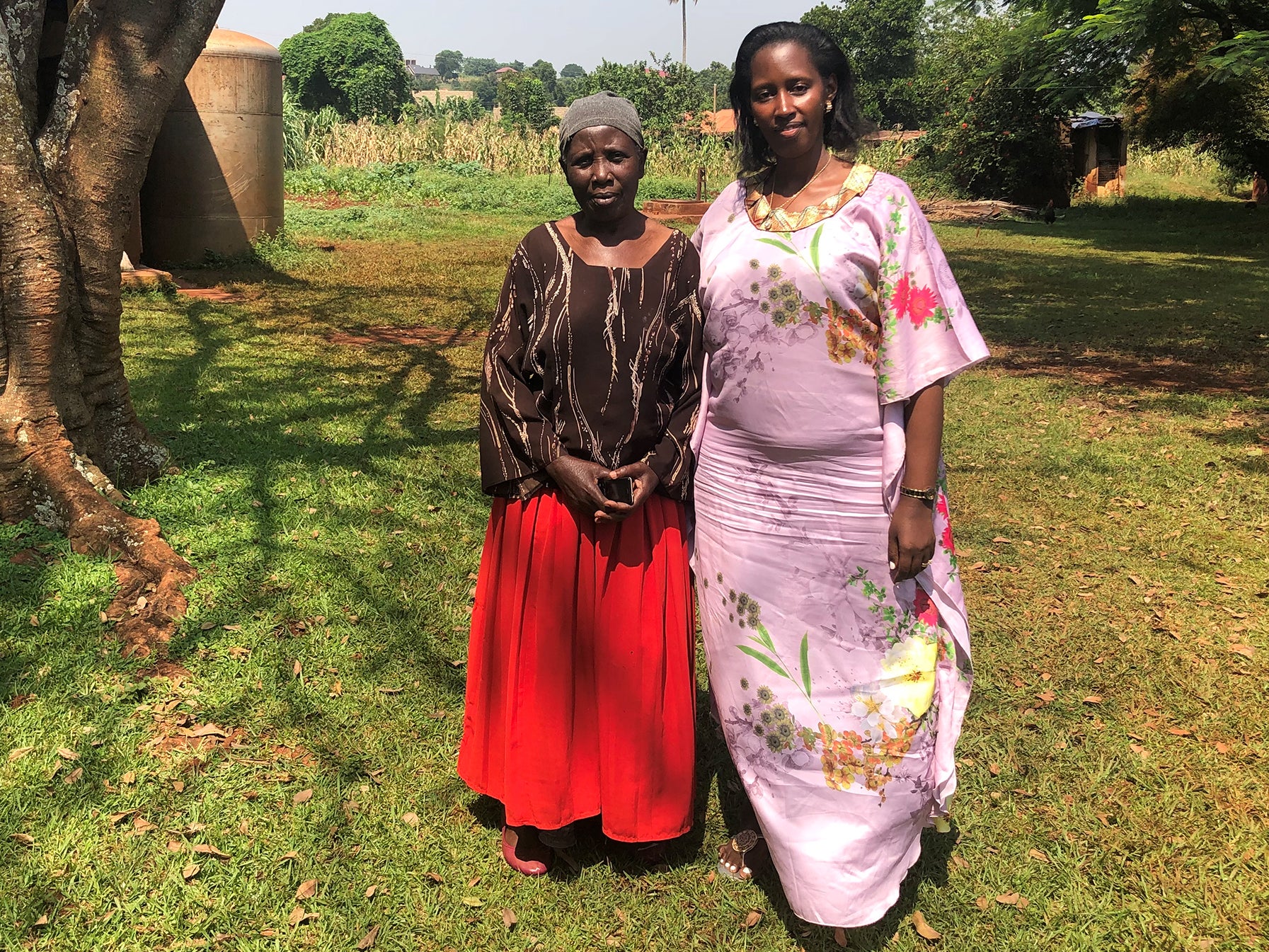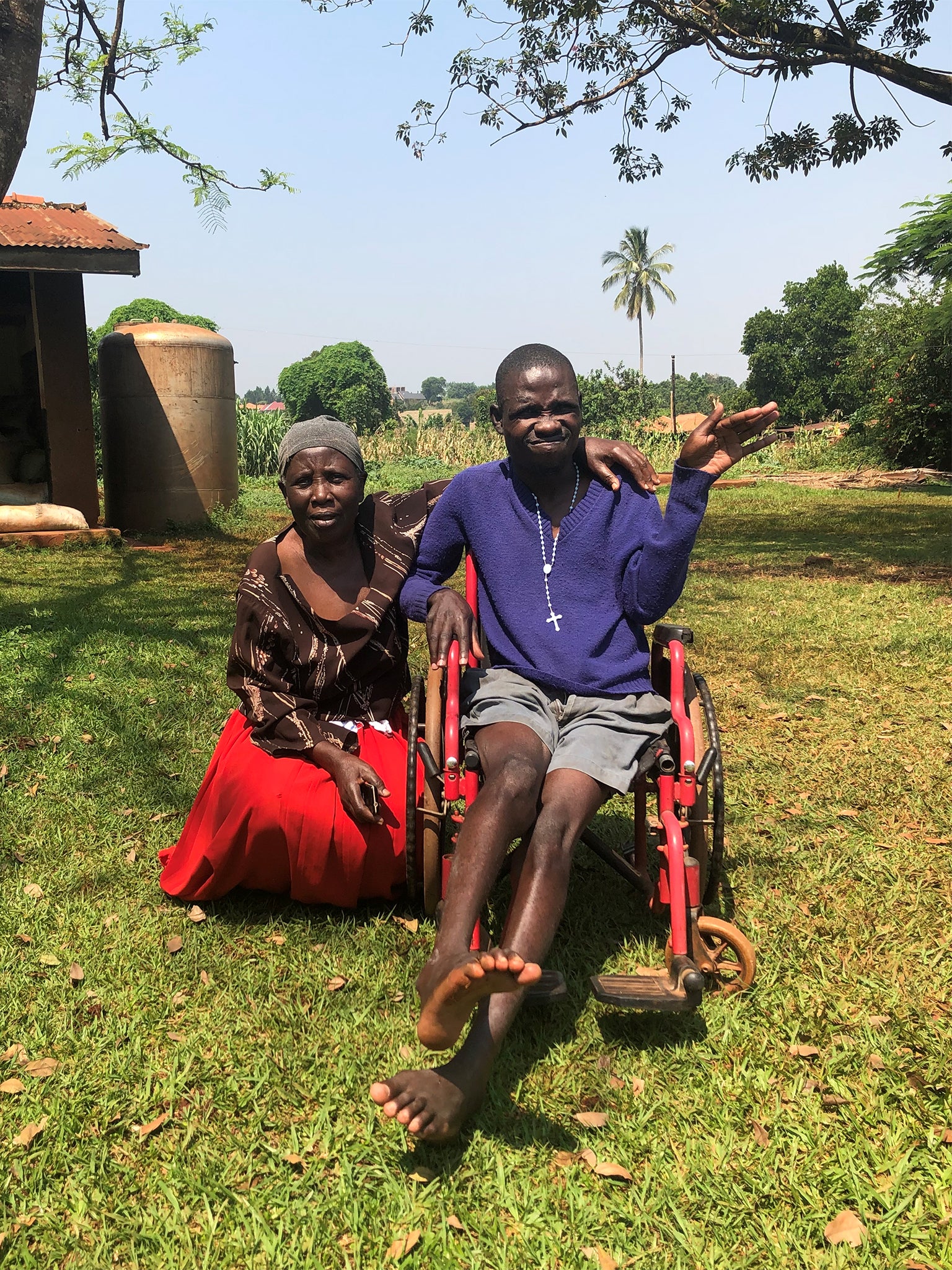The Homeless Fund: Ugandan charity makes most of limited resources to give shelter to homeless people
In Uganda, Oliver Poole explores how local charities with limited resources are seeking to help homeless people who often have no fresh food to eat

Your support helps us to tell the story
From reproductive rights to climate change to Big Tech, The Independent is on the ground when the story is developing. Whether it's investigating the financials of Elon Musk's pro-Trump PAC or producing our latest documentary, 'The A Word', which shines a light on the American women fighting for reproductive rights, we know how important it is to parse out the facts from the messaging.
At such a critical moment in US history, we need reporters on the ground. Your donation allows us to keep sending journalists to speak to both sides of the story.
The Independent is trusted by Americans across the entire political spectrum. And unlike many other quality news outlets, we choose not to lock Americans out of our reporting and analysis with paywalls. We believe quality journalism should be available to everyone, paid for by those who can afford it.
Your support makes all the difference.When Nalongo Nabumadi was living on the streets of Kampala, Uganda’s capital city, she was so hungry that she and her son were reduced to eating worms.
Widowed in her mid-50s when her husband died from a sudden illness and cast out of their house by their landlord after she struggled to pay the rent, she had been left alone with her severely disabled son to care for and nowhere to live.
In a country where disability can too often be viewed by friends and family as a sign of bad luck, and worse as bad luck that can be catching, no one would take them in.
This left her – until she and her son were taken in by the Ugandan charity Street Resource – with nowhere to sleep at night other than on a stone floor amid the skeletal remains of an abandoned building in one of the most rundown districts of the city.
“Life was so bad,” she recalls, as she sat in the sun-lit day area of the housing shelter provided by Street Resource. “I would go through other people’s garbage to find something to eat – a rotten banana or a rotten mango. We had to eat food infested with worms. It would make us sick.
“We would beg but no one would give so we would have to search for food. Often the only water to drink was stagnant. Life was so terrible I do not know how we survived.”
If you have nothing, life in Uganda can be as tough as life can be. The country has a population of just over 44.5 million – with about 8 million people living in poverty. The average income is just £50 a month.

Almost 60 per cent of the Ugandan population is under the age of 18, which makes children and youth particularly vulnerable to homelessness. As a result, it is estimated there are as many 15,000 homeless children in Kampala alone.
What is notable is how, when faced with such problems, it is often Ugandans themselves rather than just international NGOs which are stepping forward to help those facing the worst instances of homelessness in the country.
Which is what brought Street Resource to The Independent’s attention. Seeing the scale of deprivation in the country, and knowing that international charitable efforts were not enough alone to improve the situation, we wanted to see how local organisations – many coming from the activity of local churches – were seeking to help those most in need.
Street Resource is an example of an increasingly common story. It was founded in 2017 by a woman, Merry Ntungyire, shocked by how the most vulnerable of her countrymen and women were being abandoned, often in hospitals after they suffered a serious injury or mental health crisis, by their families as they did not have the financial resources to support them.
“I had to do something,” the 40-year says, of how she therefore founded Street Resource two years ago. “I was volunteering at Mulago Hospital and realised what was happening. There were people who had no one to support them in hospital, where people need their families to help wash and feed them, or give them somewhere to live once they recovered. That is why I started Street Resource.”
Using her own savings and recruiting many of her staff from her faith network, she rented a former old people’s home in Jinja, the famous old colonial city built at the source of the River Nile. It now houses 17 people, none of whom would otherwise have a place left to live.
To Western eyes, the situation at is very basic. The buildings date back to 1980. Each person gets given a small room in which to live but it is limited with a bed, mattress and mosquito net and basic amenities. Security staff ensure the safety of those there but none have medical or professional counselling training.
![Street Resource founder Merry Ntungyire [C] with residents of the centre in Jinja](https://static.independent.co.uk/s3fs-public/thumbnails/image/2020/01/23/15/street-resource-4.jpg)
None of this would be the type of location that would grace the cover of a Western NGO’s fundraising leaflet. But, compared to their lives before, there is no denying the reality that such accommodation is unquestionably a huge step up for the residents.
Nalongo, now 68 and still caring for her son Mbale, confirms that. “Here, when my son falls sick, he is taken to hospital and we are fed,” she says. “Now at last we have a bed. We are safe. Before I slept on the floor. Here I have a mattress.”
Ms Ntungyire knows the solutions she offers is not perfect but she is trying, supported by other Ugandans, to do more. Already she also pays for three people to look after those abandoned at a hospital, washing them when they get dirty and giving them emotional support when their illnesses are at their worst.
Next she is trying to raise to raise funds to house and provide employment training to abandoned girls in Kampala for girls are often the most vulnerable, and at risk of sexual exploitation, of all Uganda’s homeless.
“We are trying to do our best,” she says, “and trying to raise more money but it is hard. There are so many people suffering. But we do what we can. It is something at least, and I hope we can soon do more.”
Such is the reality of trying to give care in a country with such huge need. Such is also the reality of how small the steps up can be, and how terrible life at the bottom is for those left there.
In a country like Uganda, the problem of homelessness is one of survival and in Street Resource, there is an organisation driven by the desire to help. Limited it may be but, as Ms Ntungyire says, at least it is doing “something”.
In Uganda, faced with the daily reality of such poverty, it is Ugandans who are finding they have had no choice but to deliver their own solutions, however imperfect, to the problem of the people living on their streets.
To learn more about Street Resource and its work, you can contact Merry Ntungyire at streetresource@gmail.com
Join our commenting forum
Join thought-provoking conversations, follow other Independent readers and see their replies
Comments